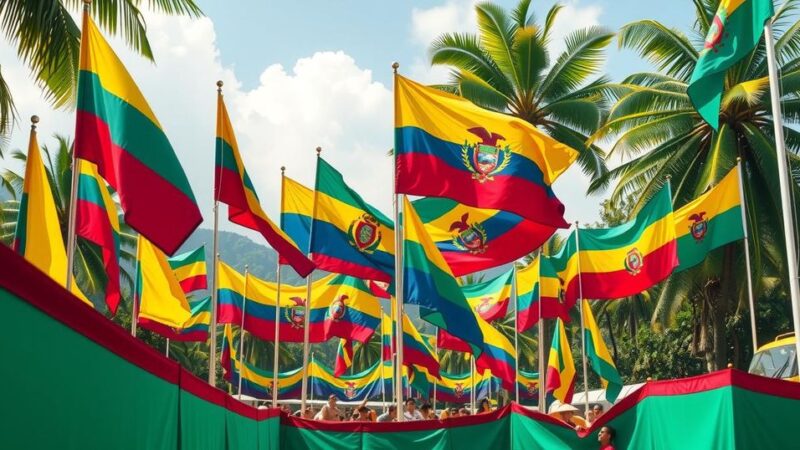Former Kaduna State Governor Nasir el-Rufai recently joined the SDP, with alarming statements from his son highlighting a history of violence and intolerance toward dissent. Under his leadership, Kaduna experienced a significant surge in mass-casualty incidents and political suppression, establishing a record of threats against opposition and serious human rights abuses. El-Rufai’s past actions raise concerns about his potential future in politics, as he attempts to rebrand himself.
In a significant political shift, former Kaduna State Governor Nasir el-Rufai has left the ruling All Progressives Congress (APC) to join the Social Democratic Party (SDP). His son, Bashir, ominously warned that continued attacks on indigenous Fulani herdsmen would result in violence against the Southern Kaduna residents. This statement illustrates a troubling lack of concern for community coexistence, a troubling affinity for violence, and the indiscriminate nature of the threats made against civilians.
El-Rufai’s past actions have consistently contributed to an environment of fear. In January 2019, he made threats against foreign observers during Nigeria’s presidential elections, stating that they “will go back in body bags.” This sentiment reflects an unyielding approach to suppressing dissent, echoing the actions of his political benefactor, President Muhammadu Buhari, especially after the controversial removal of Chief Justice Walter Onnoghen.
The family’s involvement in silencing opposition is further exemplified in the case of Abubakar Idris, known as “Dadiyata,” who disappeared under suspicious circumstances after vocally criticizing the APC. His vanishing act continues to provoke concern, aided by Bashir’s dismissive tweets about the consequences of public dissent. El-Rufai’s regime demonstrated a pattern of political suppression and violence, culminating in physical attacks against critics, including the demolition of the homes of opposition figures.
El-Rufai’s governance was marked by an alarming rate of violence and insecurity, severely undermining his initial commitment to reduce crime and protect citizens. The deaths of prominent figures, such as Agwam Adara III, following systematic abductions, reveal a landscape where dissent leads to dire consequences. His approach has led to Kaduna State garnering a reputation as one of the most perilous regions for journalists and religious leaders, raising concerns about the brutal suppression of free expression.
His tenure notably escalated the incidence of mass atrocities within Kaduna. The statistics indicate a distressing rise in fatalities under his governance, with sequential years witnessing jumps in violence compared to other states, surpassing even the notorious Boko Haram in 2021. Kaduna State has become synonymous with sectarian turmoil, with the area of Southern Kaduna suffering particularly due to its diverse populations and political neglect by the governor.
El-Rufai has frequently deflected blame towards external forces, dismissing acts of violence as mere criminality perpetrated by “independent criminals” instead of addressing systemic issues within his administration. The perceived complicity and strategic silence surrounding the violence during his administration stand as a testament to his controversial leadership style.
After stepping down in 2023, Kaduna surprisingly saw a significant reduction in mass-casualty incidents, suggesting the direct consequences of his leadership. Nevertheless, el-Rufai’s history of political intolerance and violent rhetoric casts a long shadow over his future aspirations, as he attempts to present himself as a more moderate figure.
In summary, Nasir el-Rufai’s governance has been heavily characterized by threats, violence, and political suppression. His actions and the statements made by his family indicate a disturbing affinity for confrontation and intimidation, particularly against those dissenting from his views. While he aims to reframe his political persona, his track record raises serious questions about his commitment to pluralism and civil discourse, particularly as he seeks relevance in Nigerian politics.
Original Source: gazettengr.com






